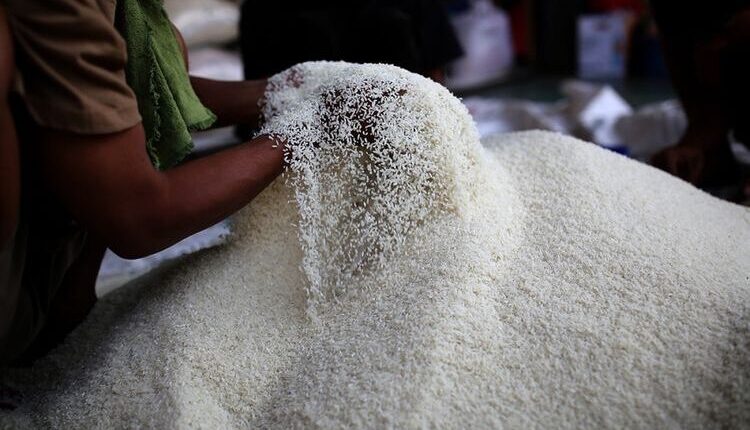Appreciating the Government’s Efforts to Intervene to Maintain Rice Price Stability
The Minister of Trade, Zulkifli Hasan, guarantees that rice supplies will be available on the market at affordable prices. One of them is by carrying out Market Operations (OP) and the Cheap Food Movement (GPM) every day in various regions to ensure the availability and price of rice is affordable for the community. This was done in accordance with President Joko Widodo’s direction so that related parties move quickly to reduce rice prices.
In an effort to reduce the increase in rice prices, the government has assigned Perum Bulog to distribute rice specifically for the Food Supply and Price Stability (SPHP) program with a selling price according to the Highest Retail Price (HET) at the consumer level. Bulog was also asked to participate in implementing GPM in collaboration with local governments to provide food at affordable prices. Apart from that, the government is also speeding up the distribution of 10 kilograms of Rice Food Assistance to 21.3 million Beneficiary Families (KPM) which was originally scheduled to take place from October to September.
In line with the Minister of Trade, Minister of Home Affairs (Mendagri) Muhammad Tito Karnavian has asked the Regional Government (Pemda) to immediately organize a Cheap Food Movement when facing rising prices of various commodities, such as now. Regional governments can utilize the Regional Revenue and Expenditure Budget (APBD) and Unexpected Expenditures (BTT) to implement the program. The regional government can also invite wealthy communities and companies to support the Cheap Food Movement program.
Furthermore, the Minister of Home Affairs also asked the Regional Government to utilize the deconcentration funds provided by the National Food Agency (Bapanas) to all provinces. Because up to now there are still 16 provinces where the realization of deconcentration funds is low. Of the IDR 142 billion given, only around 2.71 percent of the budget has been realized. In fact, these funds are a form of support from the central government through Bapanas so that regions can intervene to control inflation, especially regarding food prices.
In order to increase this realization, the Minister of Home Affairs directed the Secretary General (Sekjen) of the Ministry of Home Affairs to hold meetings with provinces where the realization of deconcentration funds is still low. The forum will involve Bapanas to provide direction to the provinces present. This forum is also to gather various problems faced by regional governments in realizing these funds.
On the other hand, the Minister of Home Affairs also asked the Regional Government to coordinate with the local Bulog regarding rice reserves in their regions so that there are control measures. To speed up distribution, regional governments can also utilize deconcentration funds, including BTT. If in doubt about using these funds, the Regional Government can coordinate with the District Attorney in their respective region to obtain an explanation.
The GPM and Food Assistance programs are starting to show a positive impact in controlling rice prices in a number of areas. From the monitoring results of the West Java Food and Livestock Security Service (DKPP), rice prices are starting to stabilize with the average price until the third weekend of September 2023 reaching IDR 11,483 per kilogram. The Central and West Java Provincial Governments continue to try to increase food aid to control rice prices.
The Acting Governor of West Java, Bey Triadi Machmudin, said that since the food aid was introduced, the price of rice has gradually been controlled, although it has not yet completely returned to normal prices. He noted that the impact of Food Reserve Assistance (BCP) in West Java from Bapanas which was launched by President Joko Widodo in Bogor at the beginning of last September was already visible even though distribution was only 54 percent for 4,149,374 KPM. The West Java Provincial Government, Bulog and PT Pos Indonesia continue to speed up the distribution of BCP to a number of regions so that it is completed before September 30.
Meanwhile, the Tasikmalaya City Regional Inflation Control Team (TPID) held a cheap rice market operation at the Cikurubuk Main Market. Residents can purchase a cheap rice market with a price according to the HET of IDR 10,900 per kilogram at a number of designated rice kiosks.
Head of the Tasikmalaya Bank Indonesia Representative Office, Aswin Kosotali, revealed that the cheap rice market operation uses SPHP rice in collaboration with Bulog, Ciamis Subdivre. With the availability of rice supplies in the community, Aswin hopes that the SPHP food and rice assistance program through people’s market operations can see an impact on the affordability of rice prices in the future. Apart from that, market operations are also carried out to avoid panic buying by the public which could cause prices to continue to rise and inflation to become uncontrollable.
The government will continue to intervene in the market to reduce rice prices. Government intervention in rice is not only carried out at the Cipinang Rice Main Market (PIBC). Market operations also target retail and traditional markets directly. This is one way to ensure that the government’s rice reserves, which are priced at IDR 10,385 per kilogram, can be accessed directly by the public.
Apart from that, the Cheap Food Movement’s massive efforts were carried out in conjunction with the distribution of rice food aid which began to be distributed at the beginning of September to intervene in rice prices. Thus, it is hoped that rice prices will fall again within the next two to three weeks.
